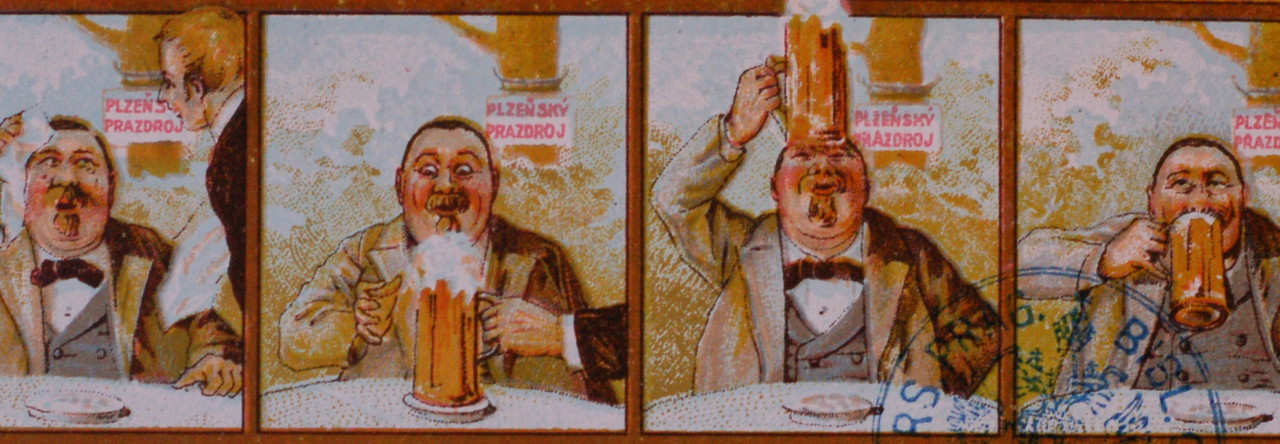
Following up on yesterday’s news about Heineken’s purchase of the Drinks Union brewery group, I did some back-of-the-beermat math to try to explain why it matters if local breweries aren’t locally owned. Here’s what I came up with:
128 million dollars.
That’s a quick estimate for the amount of money that is leaving the Czech Republic every year, simply due to foreign ownership of local breweries. That is to say that the Czech Republic — a transitional economy just 18 years removed from communism — is sending countries like Holland — one of the wealthiest nations in the world — an amount akin to $128 million every year.
Here’s how I came up with that figure.
Using the most recent reports for the Czech Republic’s 2007 beer production, we start out with 19.9 million hectoliters of beer produced here and 3.6 million hectoliters exported — meaning a domestic consumption of 16.3 million hectoliters.
One hectoliter is 100 liters. So we can call this 1.63 billion liters of beer consumed locally — right on track for the average of about 160 liters of beer consumed annually by every Czech man, woman and child.
Let’s say that the average wholesale price of a liter of beer is 16 Kč, or 8 Kč per half-liter serving. (I believe this is on the low side. Pilsner Urquell, for example, wholesales for 37.80 Kč per liter.) At 16 Kč per liter, we come up with 26.08 billion Kč in annual wholesale trade.
Let’s assume that breweries make a 10% profit on their wholesale trade. We’re now at 2,608,000,000 Kč in total annual profit, and only on the Czech Republic’s domestic beer consumption — not the exports.
According to the Czech newspaper Lidové noviny, foreign-owned breweries account for 80% of Czech production. (The world’s largest brewing group, SABMiller, accounts for roughly 49% of production here all by itself. According to its annual report, InBev, the owner of Staropramen, Ostravar and other brands, chalked up almost 15% of production by the end of 2006. With its new purchases, Heineken’s market share is now estimated at 14%. That’s 78%, and it doesn’t include the many small and medium-size breweries that are foreign-owned.)
With 80% of production, we assume that the foreign-owned breweries also earn 80% of the profit. That comes out to 2,086,400,000 Kč per year.
At today’s rates, that’s $128,078,576.
Or €81,500,000.
Or £64,236,453.
Leaving the country every year.
Just because most Czech breweries are owned by companies far away from here.
And when that $128,078,576 gets to London (home of SABMiller) or Belgium (home of InBev), or Amsterdam (home of Heineken), it is of course reinvested or spent there, not here. That $128,078,576 pays for things far away from your local pub in Prague or Brno. It pays for the very large houses of very wealthy people in London and Amsterdam, and it pays for the builders to build those houses, the suppliers to bring the lumber and bricks, the painters to paint and the technicians to install those fancy stereo speakers in the back garden that are made to look like rocks and boulders.
Just something to think about the next time you feel like drinking a beer. Instead of sending your money out of the country, you could buy a beer from a brewer like Primátor, 100% owned by the city of Náchod, which contributes its profits to the city coffers, helping to pay for schools and other essential services, instead of fancy stereo speakers that look like rocks and boulders.
This isn’t meant to be a definitive figure, just a number knocked out between pints. Naturally, I’d love hear other interpretations. If any economists out there can provide better estimates than these back-of-the-beermat calculations, please let us know in the comments.
And speaking of beermats, there’s only a few days left to send in your beermat haiku and win a prize. Of course, your haiku doesn’t have to be about locally owned breweries — but it certainly wouldn’t hurt.




E.S. Delia
Just to play devil’s advocate here…
But wouldn’t the internal sales pay sweet salaries to operations directors at these breweries? Also, with the financial backing of the Big Boys, perhaps fueling job growth in the breweries themselves with invested capital would in turn have these workers spending money locally on other goods. Not only that, but wouldn’t people be tempted migrate into the Czech Republic to compete for these jobs, further fueling the economy? Could there be side benefits of EU membership here?
I’m sure this hypothetical scenario wouldn’t equal out to $128 million, and there are a lot of factors in play, but it’s something to consider. This is basically International Political Economy… globalization on a smaller scale.
Pivero
There is something else to consider about foreign ownership´.
One thing is when a big corporation like Heineken takes over a relatively big brewer like Drinks Union, and another thing is when a foreign investor buys a smaller brewery.
Drinks Union would have certainly survived very well all by itself. They already had a pretty solid position in the market, and their future didn’t look to bad either.
But what about someone like Herold, or Žatec? Will they have survived without a foreign investor taking over? I doubt it. Yes, I’m pretty sure that the profits don’t stay here, at least not the lion’s share, but those beers are still being brewed.
Kalle
For me, it’s harder to enjoy a good beer if I have bought it from a company that i dislike (for example multinationals like Inbev or Heineken), and I also feel lika I’m being fooled if I buy a product from a company that doesn’t have any attachment to the product, and only try to get my money. So, the worst thing with this for me is that it will make it harder for me to enjoy Březňák and Zlatopramen, which were OK beers, though not as good as for example the mentioned Primátor, which I luckily can get at my local store here in Sweden (at least the Premium Lager and the Premium Dark).
Bailey
Evan — great post, and nice to see facts and figures in play.
Kalle — you might find this useful if you’re uncomfortable drinking beer brands that have been taken over by foreign companies. I find it a bit depressing as there are lots on the list that I’ve enjoyed.
Stonch
$128m is tiny amount on a national scale…
Rick
While this only considers the financial implications of foreign ownership, Kalle brings up an important point — no attachment to the product. A stark example of this is Coors’ ownership of Bass. They want to close the Bass Museum, which is rightly angering locals and those who appreciate the invaluable beer heritage such a collection represents: http://www.burtonmail.co.uk/burtonmail-news-saveourheritage/.